The Platform (2019)
Directed by: Galder Gaztelu-Urrutia
Written by: David Desola, Pedro Rivero
Starring: Antonia San Juan, Ivan Massagué, Zorion Eguileor
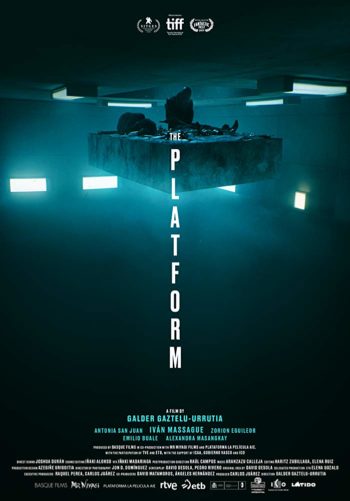
THE PLATFORM
Directed by Galder Gaztelu-Urrutia
There couldn’t be a more apt time for this Spanish sci-fi/ thriller to reach streaming services. As people angrily fight for food or loo-roll in a supermarket near you, and the indiscriminate nature of Coronavirus raises questions the distribution of resources, this couldn’t be better timed. When it premiered last September, Galder Gaztelu-Urrutia could not have known his latest film, about how desperate situations can bring out the worst in people, would watch like a warning. That we can be selfish when it feels or like life or death. Or, in this case, eat or be eaten.
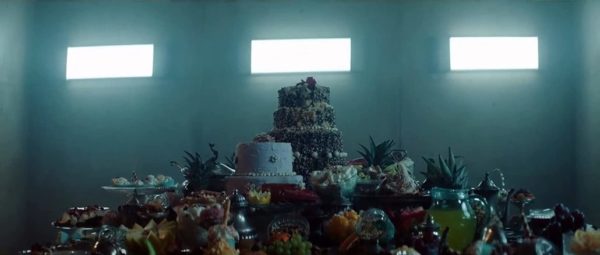
There’s enough food to go round if they all agree to share: a vast banquet. However, the prisoners, who live two to a cell on each of the 200+ floors in this vertical prison (aka The Hole) aren’t the sharing type. Every day a floating platform starts on level one, and then works its way down, stopping for a minute or two on each floor. Prisoners eat what they can before it descends to the next and so on. Those at the top gorge on the cakes, lobster and snails, leaving those near the bottom with empty silverware. Although he doesn’t know it, Goreng (Massagué) is among the luckier ones when he wakes on on level 48. His cell-mate is Trimagasi (Eguileor), his, and our guide to this fucked up little fable, who is more than happy to pick over leftovers from 47 other pairs. Heck, he knows it could be a lot worse. Because every 30 days they switch floors.
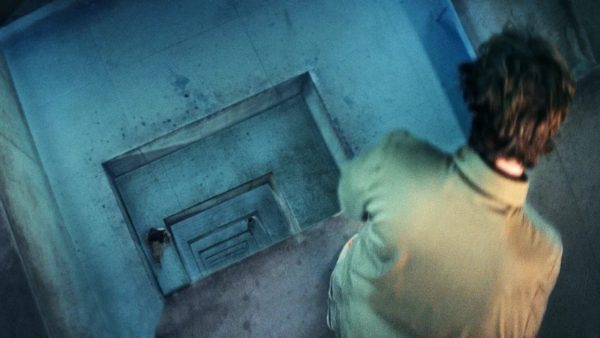
I’ll leave the summary here, as this unconventional prison has a few other secrets – none of which are pleasant. Make no mistake; this movie is not an enjoyable watch. And given its subject matter, nor should it be. Like Bong Joon Ho’s small epic Snowpiercer, this is essentially a film about trickle-down economics, with the structurally unfair setting favouring those at one end. In this case, the top. There’s no room for revolution because the haves can ignore the have-nots (or literally and metaphorically piss on them). The scholarly Goreng immediately wants to change this system to create a sense of solidarity and sharing. If everyone only ate what they needed, the food would reach the lowest levels. Whereas to the institutionalised Trimagasi, there can be no other way. Despite the arbitrariness of where he ends up, the people above are always superior, and those beneath him are dirt. In that respect, each time the prisoners eat, they chow down a big, hot plate of symbolism.
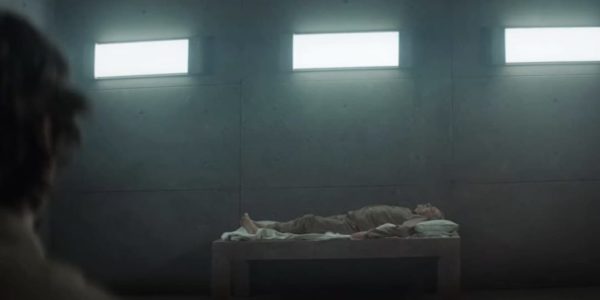
Thankfully, for the most part, it manages to integrate the, still unmissable, real-world parallels into the story in a way that doesn’t seem too forced. Its success is mostly down to its characterisation. At times, the Goreng and Trimagasi pairing watch like Godot on a grumbling stomach. Their verbal sparring, and what each comes to represent for the other, is the film’s dramatic highlight. The gradual world-building is also managed well, with clues left out like the breadcrumbs awaiting those further down. There’s a raw nastiness to it too, with scenes of people greedily wolfing down the grub having a visceral effect that’ll leave you angry and nautious. Gaztelu-Urrutia never holds back from showing what people scared people can do either. Throat-slitting, cannibalism and suicide: these things, and worse, await. A set-piece, during which Goreng descends to the depths of The Hole, is gut-churning, showing the hell everyone above wants to avoid. In this section alone, I saw things I won’t forget in a while. When people are towards the top, they stuff their faces so that they can manage the month, should they be unlucky enough to end up there. Because they know the new elites aren’t going to spare anything either. And this is why the system cannot be broken: it stays bad because it brings out the worst in people.
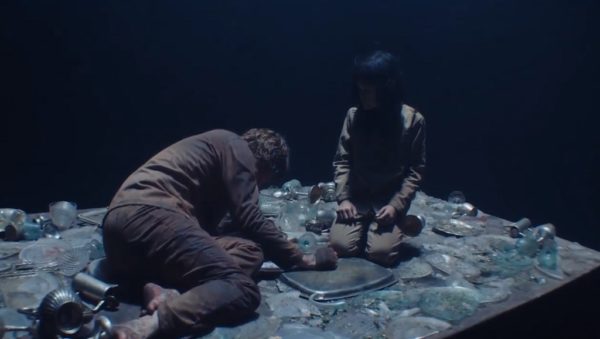
If there’s a problem, it’s that in creating a concept which implies an unseen cast of hundreds, authors Desola and Rivero expose the far-fetched contrivances necessary for the plot to work. Without going into specifics, as it’s easy to say too much, the few supporting characters have a habit of showing up when it’s narratively convenient for them to do so. This flaw is particularly evident during two of the most intense scenes, including a very late one, where it watches as if the scribes have written themselves into a corner and lazily landed on something that’d do. It all but ruins the last act with big moments hinging on absurd coincidences. Some may argue that this approach doesn’t necessarily matter since the movie is intended to be allegorical – provided the characters actions further the themes. However, because at least Goreng and Trimagasi have been fleshed-out characters in a symbolic situation, as opposed to them being the symbols themselves, this sort of writing seems cheap. It’d be more impressive if, like the seemingly magic platform of the title, we don’t see the mechanisms at work.
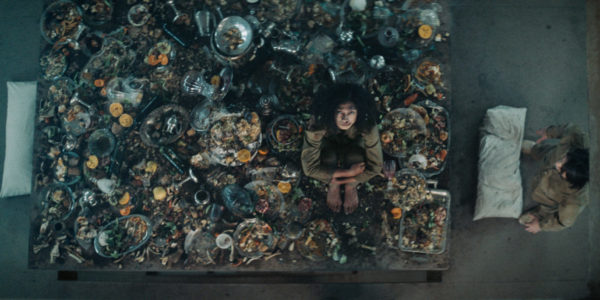
Similarly to Snowpiercer, The Platform also sometimes struggles to align its message with its over the top action sequences. It’s like the writers lost confidence in their clever concept so tried to build to something different. In all their gratuitous, fast-cutting, hard rock punding glory these bits dehumanise the, admittedly heavily flawed, people the film portrays as victims of the system. It also breaks the characters of those who are aiming to help them. Perhaps its meant as an ironic take on how class divisions lead to us losing empathy for those less fortunate than ourselves. If so it’s still a jarring amplification of the otherwise carefully balanced black comedy quotient, and ultimately too crass for a film which has been undeniably bleak, but not balls to the wall nasty. The Platform is, therefore, most powerful when it shows the grave consequences of violence instead of revelling in it. In other words, I’m happy with the several platefuls of sausage. But I’d rather not see how they got made.
Rating: 




The Platform is available on Netflix


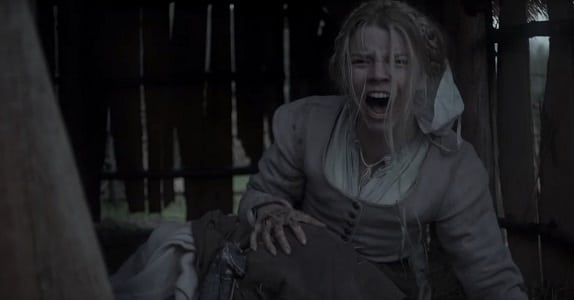

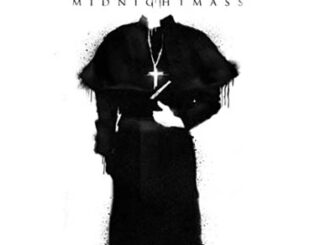
Be the first to comment